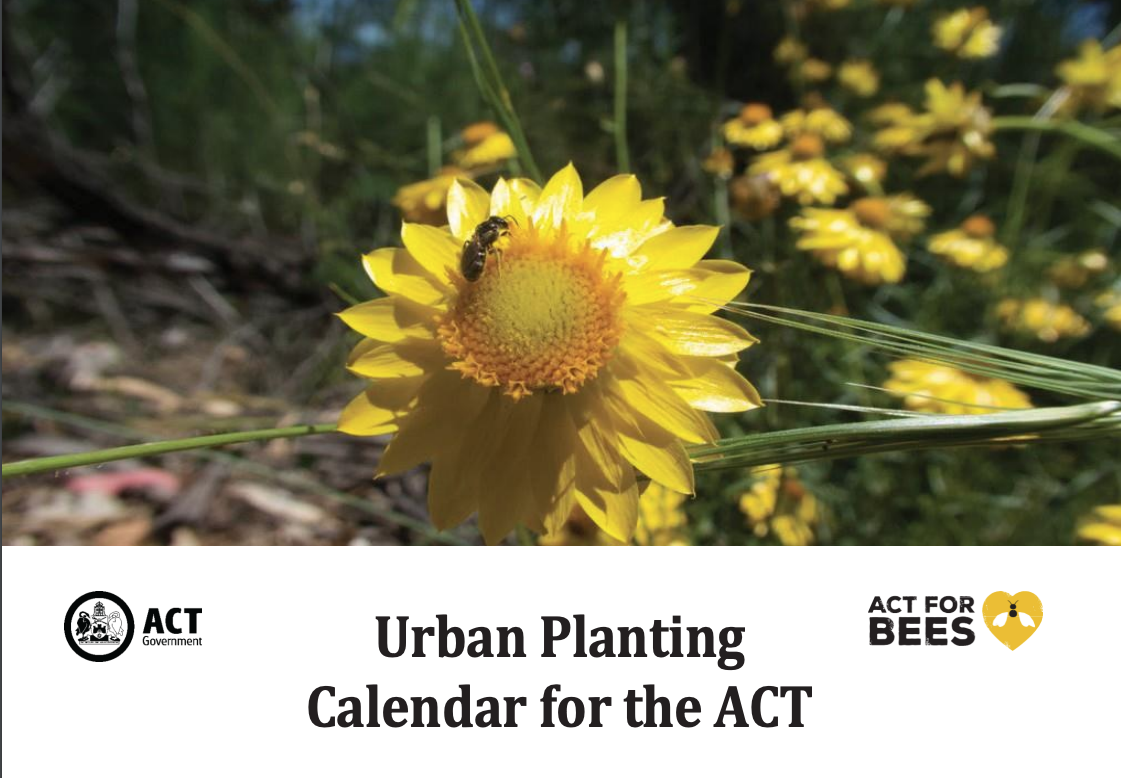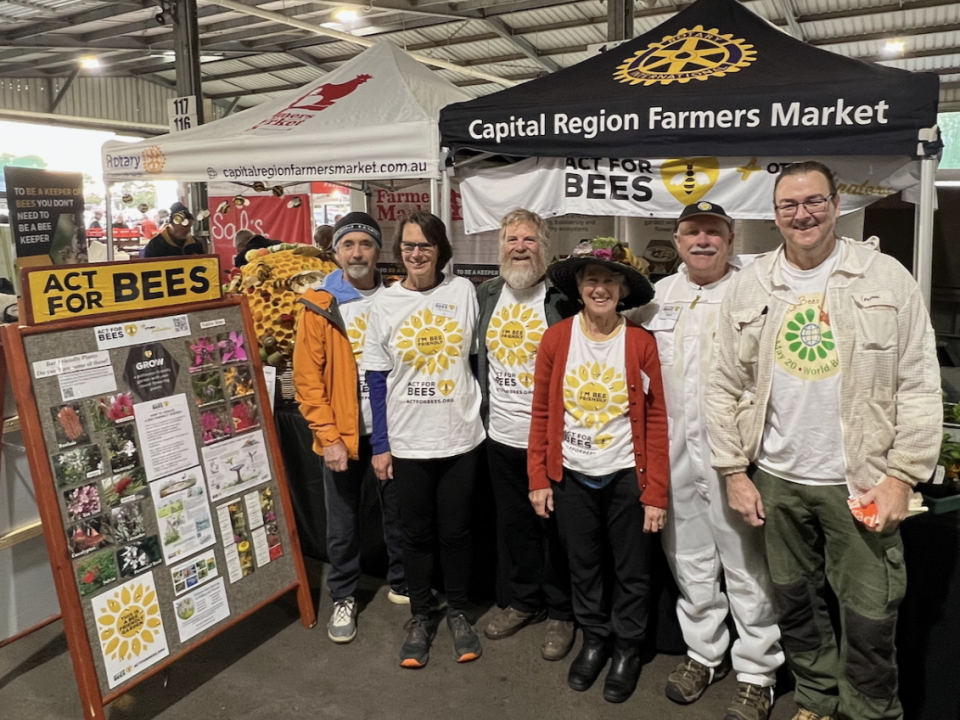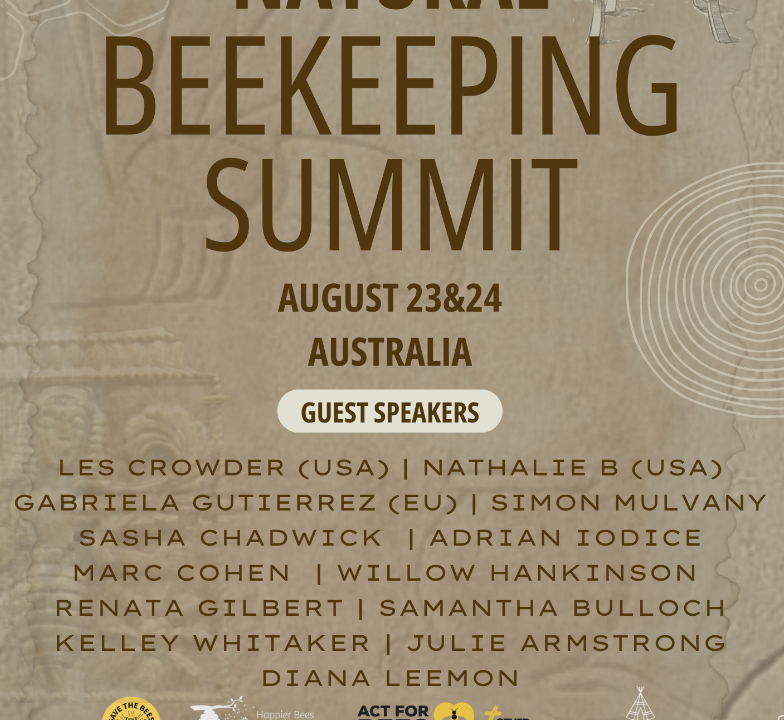
Let’s celebrate Australian Pollinator Week!
November 14, 2021
Celebrate World Bee Day May 20th on May 21st!
April 12, 2022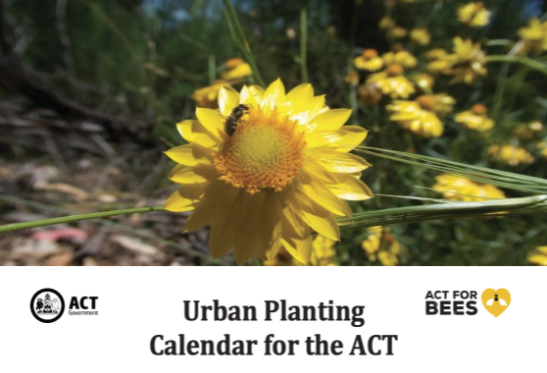
Well, here we are and it’s December again and officially it’s summer! Who could believe that two years ago, we were in the midst of a drought and the Black Summer fires were poised to take their devastating toll? Looking around our region after a very wet November, it’s as if we’ve been transported to another place – verdant, lush and humming with growth.
Reflecting on the year that has been, highlights included the very successful workshop at Ginninderry in April, the World Bee Day and World Biodiversity Day celebrations in May and a number of presentations and representations to different groups before the COVID-19 lockdown kept us all at home. However, even during lockdown, we were able to run a couple of online seminars with the Canberra Environment Centre on Pollinator Friendly Gardens. Then, to coincide with Australian Wild Pollinator Week, the ACT Government released its updated Urban Planting Calendar. This was the culmination of a lot of work and ACT for Bees is proud to have contributed. The calendar includes flowering times and which plants different pollinators favour. Providing habitat and food for pollinators matters because pollinators are the foundation of biodiversity and without them, our food supply and surrounding landscapes would collapse. As one international expert noted:
“The way humanity manages or mismanages its nature-based assets, including pollinators, will in part define our collective future in the 21st century ……The fact is that of the 100 crop species that provide 90 per cent of the world’s food, over 70 are pollinated by bees.[1]”
As the remarkable achievements of pollinators are frequently taken for granted, we’re thrilled that the ACT Government is acting to encourage habitats for their continued wellbeing.
The Capital Food and Fibre Strategy to build sustainable rural and urban agriculture systems is open for comment on the ACT Government Have YourSay website. Despite a thriving local farmers market scene and an increasing number of community gardens across Canberra, the ACT is reliant on food produced elsewhere. An estimated 90% of our leafy greens and fruits alone come from the Sydney region. We want the ACT to join other cities around the world such as Seattle, Toronto, Barcelona and Melbourne, who have invested in urban agriculture and protecting rural agricultural land as part of building local food security.
After the very wet winter and spring, we’re all experiencing lots of bugs in the garden. But, before you reach for the insecticide, reflect on Antoine de Saint-Exupery’s advice in The Little Prince:
“Well, I must endure the presence of a few caterpillars if I wish to become acquainted with the butterflies.”
and go to our website for suggestions on pest management.
[1] Achim Steiner, Executive Director UN Environment Programme (UNEP).

Especially for Kids
We’ve recently updated our website with a huge range of resources for teachers and children. In addition to the great books listed on our website, these new releases would also make wonderful gifts.
1001 Bees by Joanna Rzezak is a book for younger readers (aged 4+) telling the story of Mr Busby the beekeeper. Readers visit the bees inside the hives, meet their queen and discover how the bees make honey. Then they join the bees as they visit their favourite flowers and swarm. It tells the story of pollination and how pollinators are crucial to life on earth.
Our World Out of Balance: Understanding Climate Change and What We Can Do by Andrea Minoglio and Laura Fanelli is an illustrated nonfiction guide which introduces children (ages 8-12) to the important topic of climate change with tips on “How You Can Help” and citizen scientist activities.
Under my Tree by Muriel Tallandier and Muziho Fujisawa is a modern take on Shel Silverstein’s The Giving Tree that celebrates the friendship between a curious child and her favourite tree.
Wandi byFavel Perrettis a story about a young dingo cub snatched from his family and home by a giant eagle, then dropped, injured and alone, in a suburban garden. This is where he meets his first Human, and begins his long journey to becoming the most famous dingo in the world.
The Conservation Council ACT has recently produced a wonderful free guide to download to discover Canberra’s Natural Heritage – ‘Canberra’s Amazing Nature’ .

Some interesting Reads, Podcasts and Videos
Penguin Books have issued a Green Ideas series comprising 21 books by various authors exploring topics relating to the environment. The range of titles includes works from Michael Pollan, Naomi Klein, Wendell Berry, Tim Flannery, Amitav Ghosh and Greta Thunberg.
Landscapes of our Hearts by Mathew Colloff is a personal reflection on the meaning of landscape and the many ways we relate to country. He asks ‘Can the rediscovery of landscape and history truly help make real the prospect of national understanding and reconciliation?’
Philosopher Danielle Celermajer’s story of Jimmy the pig caught the world’s attention during the Black Summer of 2019-20. Gathered in Summertime is that story and others written in the shadow of the bushfires that ravaged Australia. These stories are beautifully written and are “at once a howl in the forest and an elegy for a country’s soul”.
This recent article examines the importance of pollinators for plants. The authors estimate that only about 21% of plants are not vulnerable to pollinator declines with very clear implications for biodiversity. This includes 12% that are wind-pollinated and 9% that have very high auto-fertility.
Pollinator Partnership is a North American organisation working to promote the health of pollinators through conservation, education and research. The Wheen Bee Foundation (Australia) has recently teamed up with Pollinator Partnership to create Bee Friendly Farming certification for farmers and gardeners across Australia. Find out how your plot can be added to the map and join the growing BEE Friendly community!
We’ve shared Louie Schwartzberg’s work before on pollinators. Here’s another of his classics.
Wonder, awe and the intelligence of nature | Louis Schwartzberg | TEDxKC
BBC Earth has a large number of interesting resources including on Instagram. It recently reported on its Instagram feed that bee populations in Europe and North America have fallen one-third since 1970. Its five- part series called A Perfect Planet shows how the forces of nature – weather, ocean currents, solar energy and volcanoes – drive, shape and support Earth’s great diversity of life.
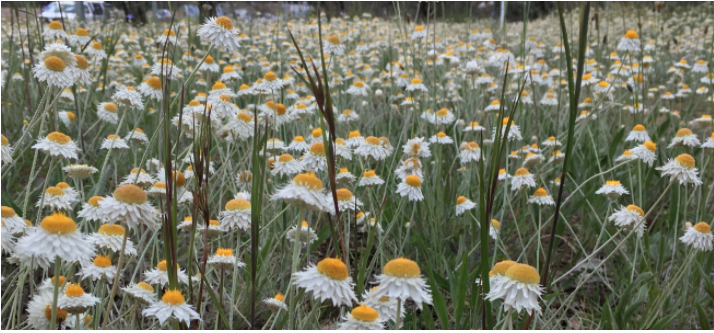
| Wishing everyone a very Happy Christmas and Festive Season with quality time enjoying and appreciating nature. Julie, Lynne, Didi, Cormac, John, Meredith, Mark, Mary, Nettie, Pin, Steven, Vicki, Valerie, Emily, Rosemary, Maddie and Balkissa the ACT for Bees team. Like to join us? We’re seeking volunteers to help us out with ACT for Bees growing activities! Please contact us. actforbees.org We respectfully acknowledge the Traditional Custodians of the land which we live and work on, the Ngunnawal and Ngambri people. We pay our respects to their Elders, past, present and emerging. This is and always will be Aboriginal Land – Please join us to Pay The Rent. We recognise the impact of climate change and increasing urbanisation on biodiversity. It is now even more important for us to plant and maintain our urban gardens and parklands to protect our bees, butterflies, birds and local wildlife. Go to actforbees.org for more information. |

